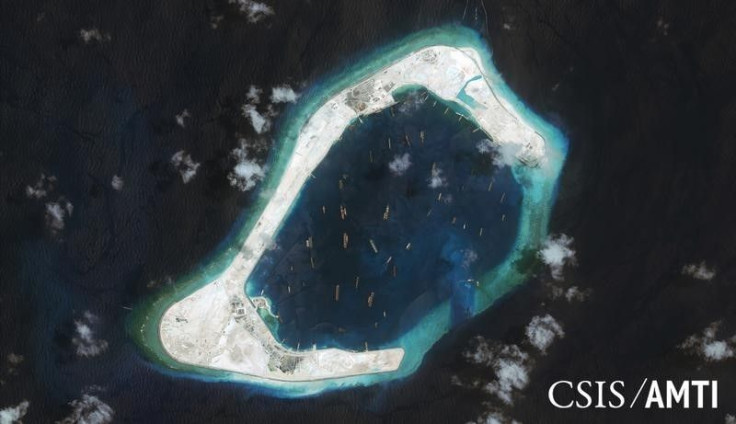South China Sea Conflict Update 2015: Hague Agrees To Hear Claims From Philippines Over Disputed Territory

An international tribunal in the Hague, Netherlands, agreed to hear a case concerning an ongoing dispute over land claims in the South China Sea, Agence France-Presse reported Thursday. Controversy over the territories known as the Spratly Islands and the surrounding waters has been building over the past several weeks as China grows more bold in its claim of sovereignty over the region, and as other international powers, including the United States, are drawn into the fray.
Chinese officials had previously argued the dispute over territory in the South China Sea was beyond the international tribunal's authority. After reviewing evidence from the Philippines, another country that has made a claim of sovereignty in the area, the tribunal decided the matter was well within its rights to hear, according to a statement from the tribunal reported by AFP.
The Spratly Islands, though small and relatively unpopulated, have become a sought-after territory in Southeast Asia as they sit in the middle of several lucrative trade routes. The land and surrounding waters have also been relatively unexplored and could contain lucrative oil or minerals.
Several countries in the region have made claims over areas of the South China Sea including China, the Philippines, Malaysia and Brunei. China has attempted to further legitimize its claim by building artificial islands, angering neighboring nations.
#UPDATE Hague court agrees to take up South China Sea row https://t.co/HpKiwBvart
— Agence France-Presse (@AFP) October 29, 2015Many countries, including the U.S., do not recognize China's claim of sovereignty, and a U.S. naval ship sailed near several islands this week, saying the boat was in international waters.
The decision to hear the two countries' claims was a defeat for China, experts said. "[This is] a major blow for China given that the opinion explicitly rejects China’s arguments that ... the Philippines has not done enough to negotiate the issues with China,” Bonnie Glaser, a South China Sea expert at the Centre for Strategic and International Studies, a U.S.-based think tank, told Reuters.
© Copyright IBTimes 2025. All rights reserved.






















